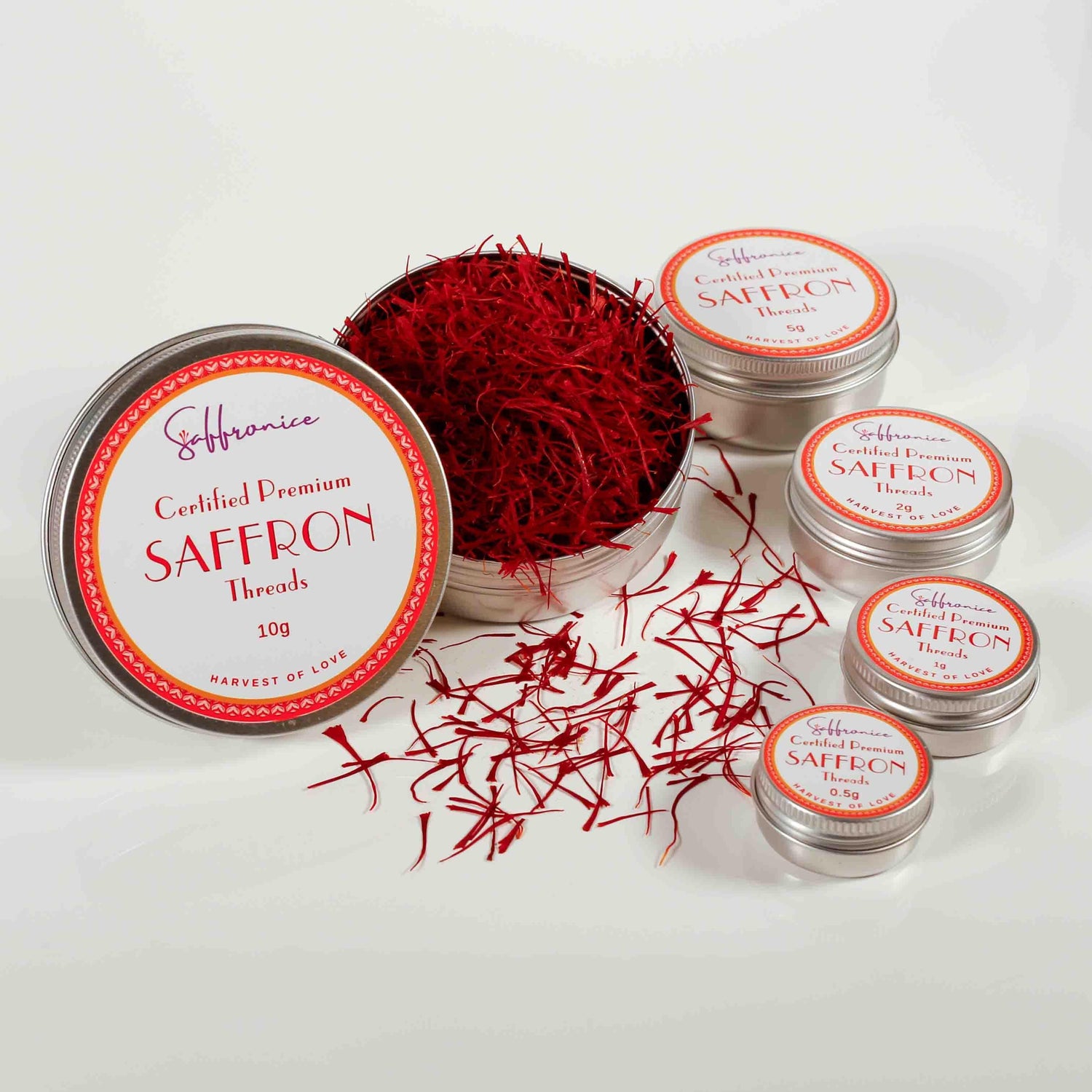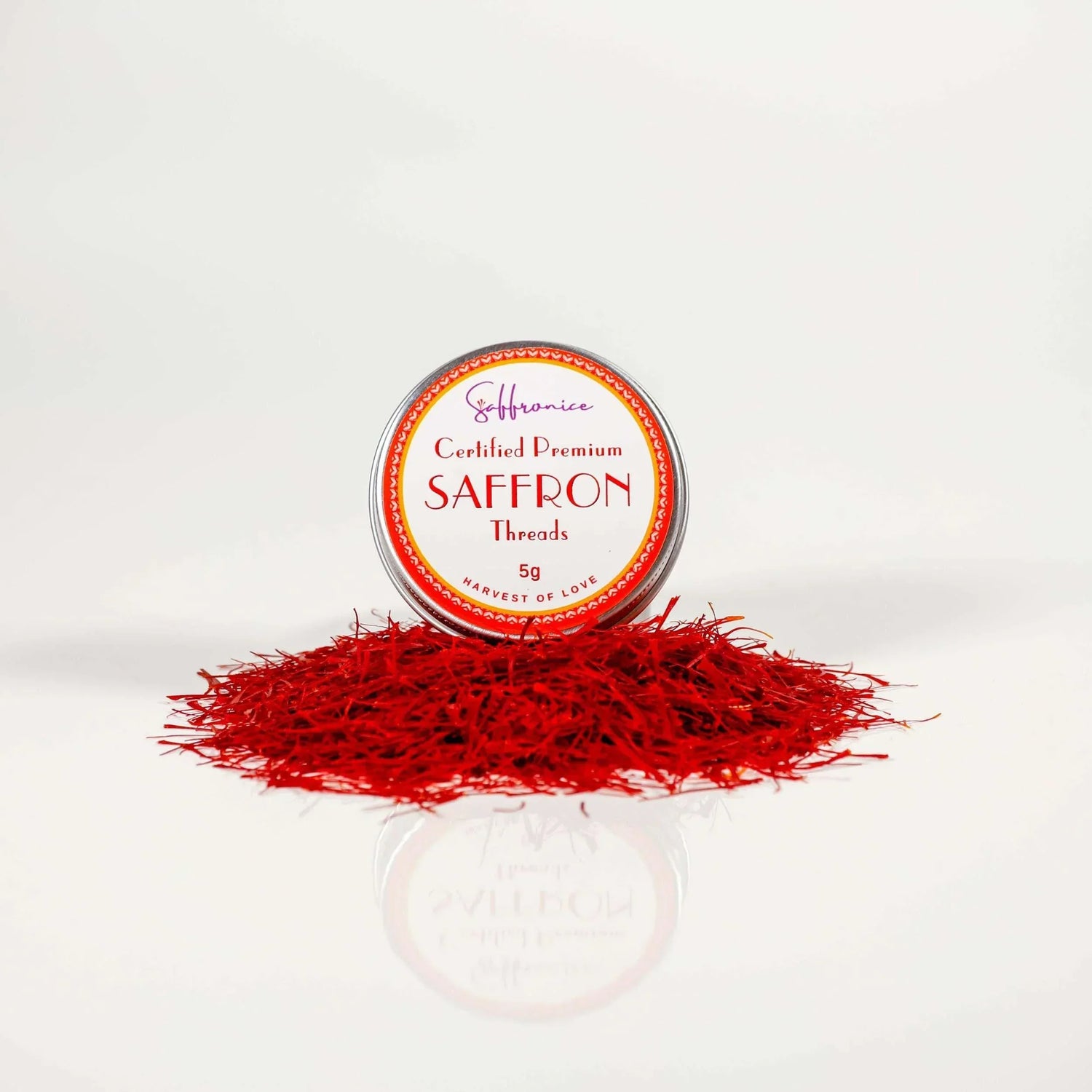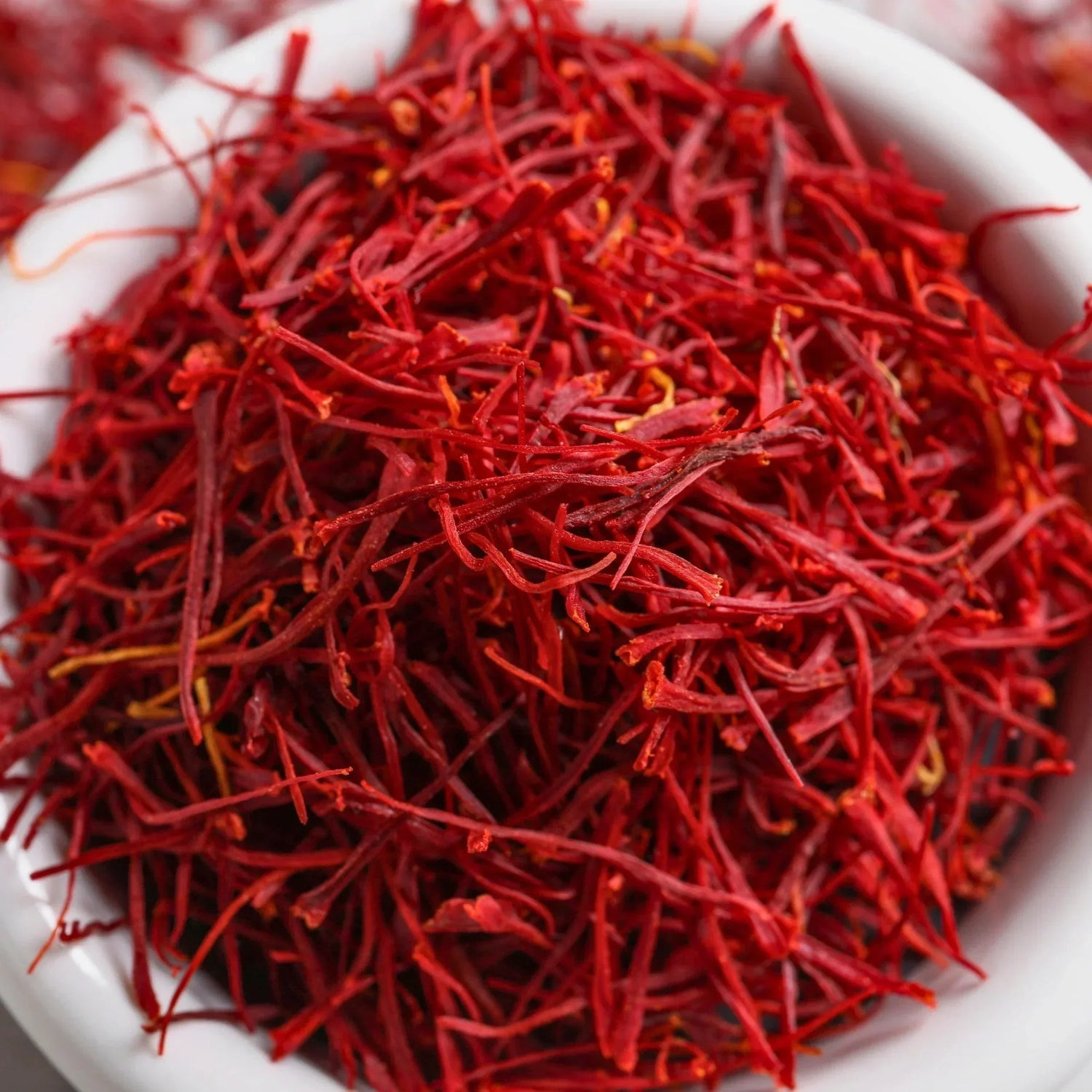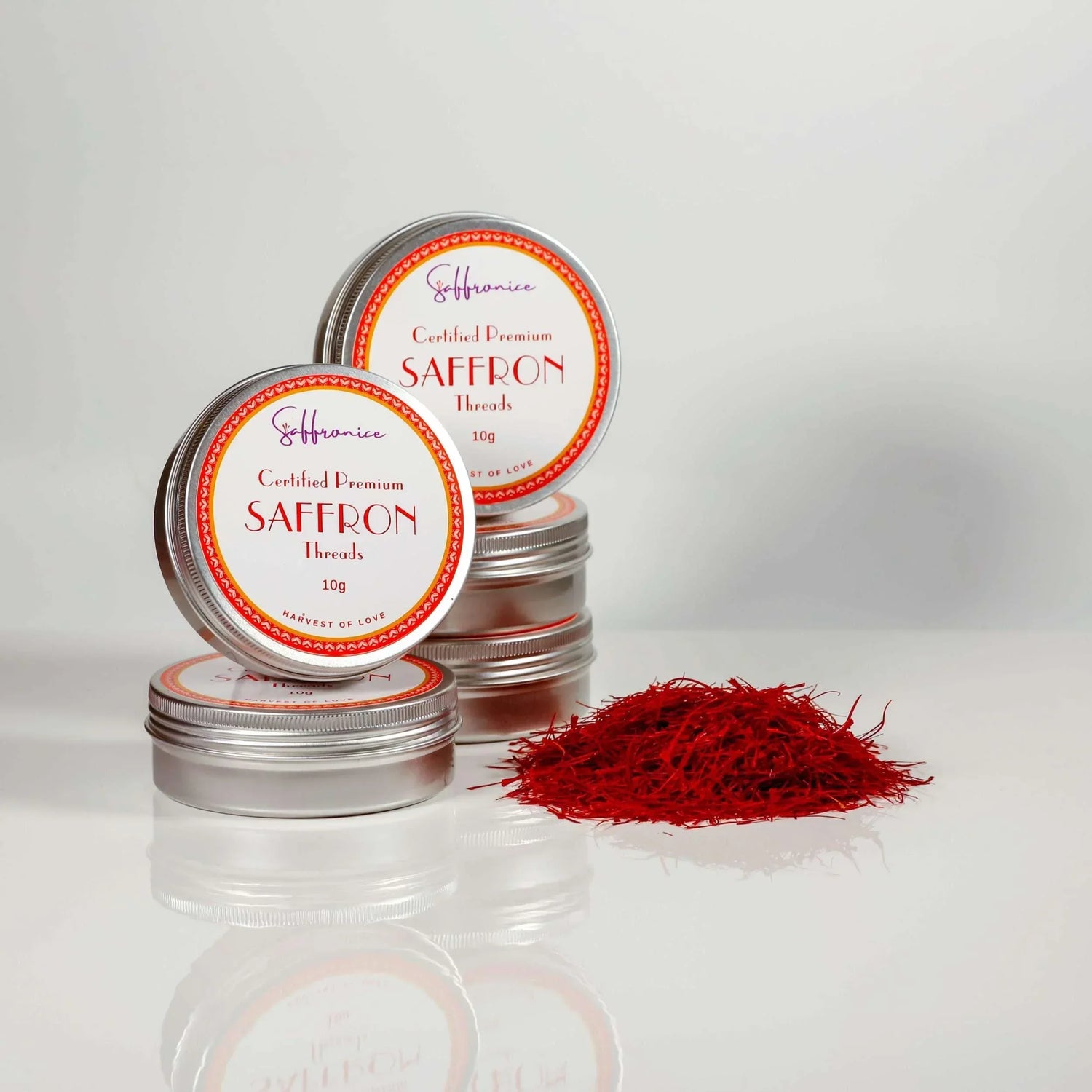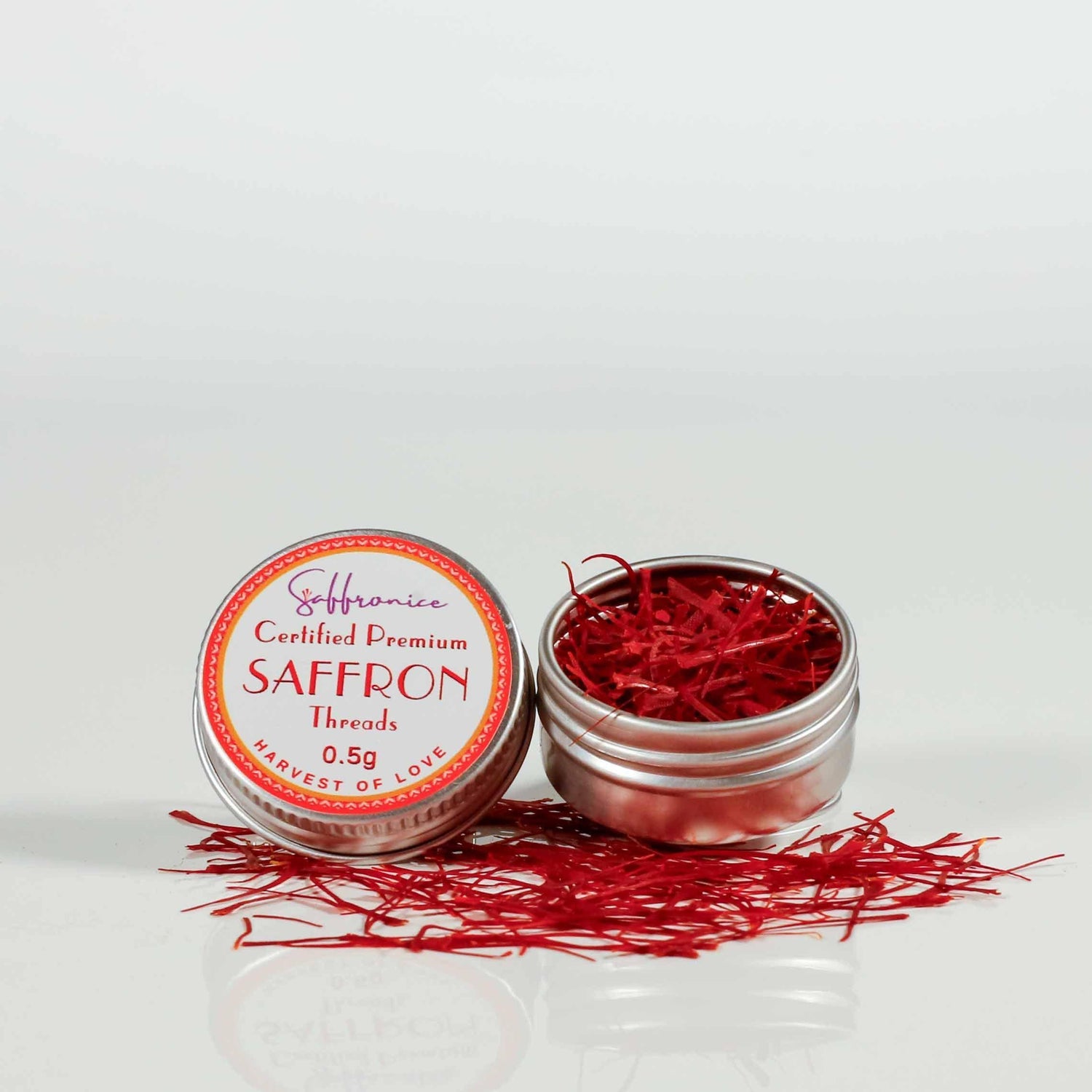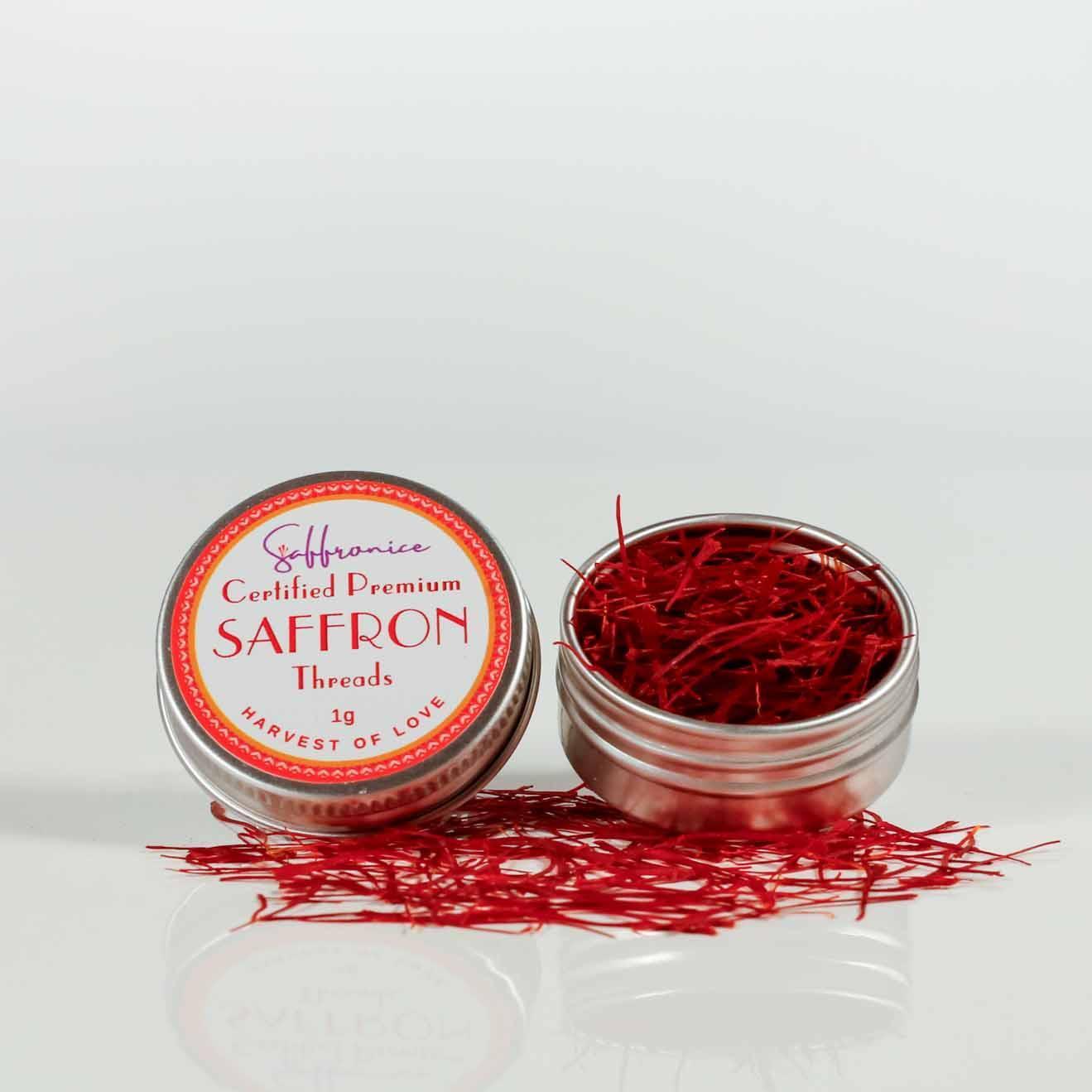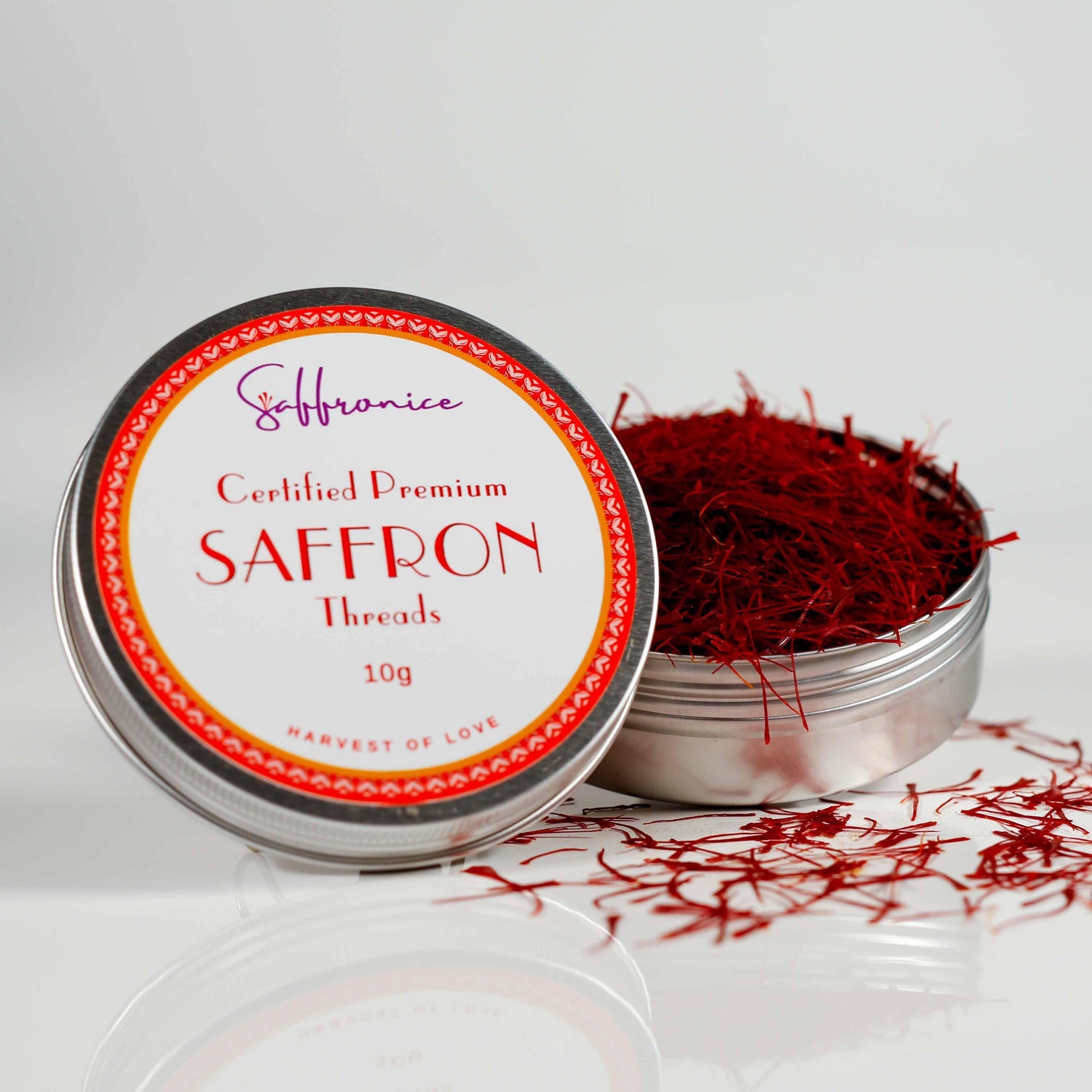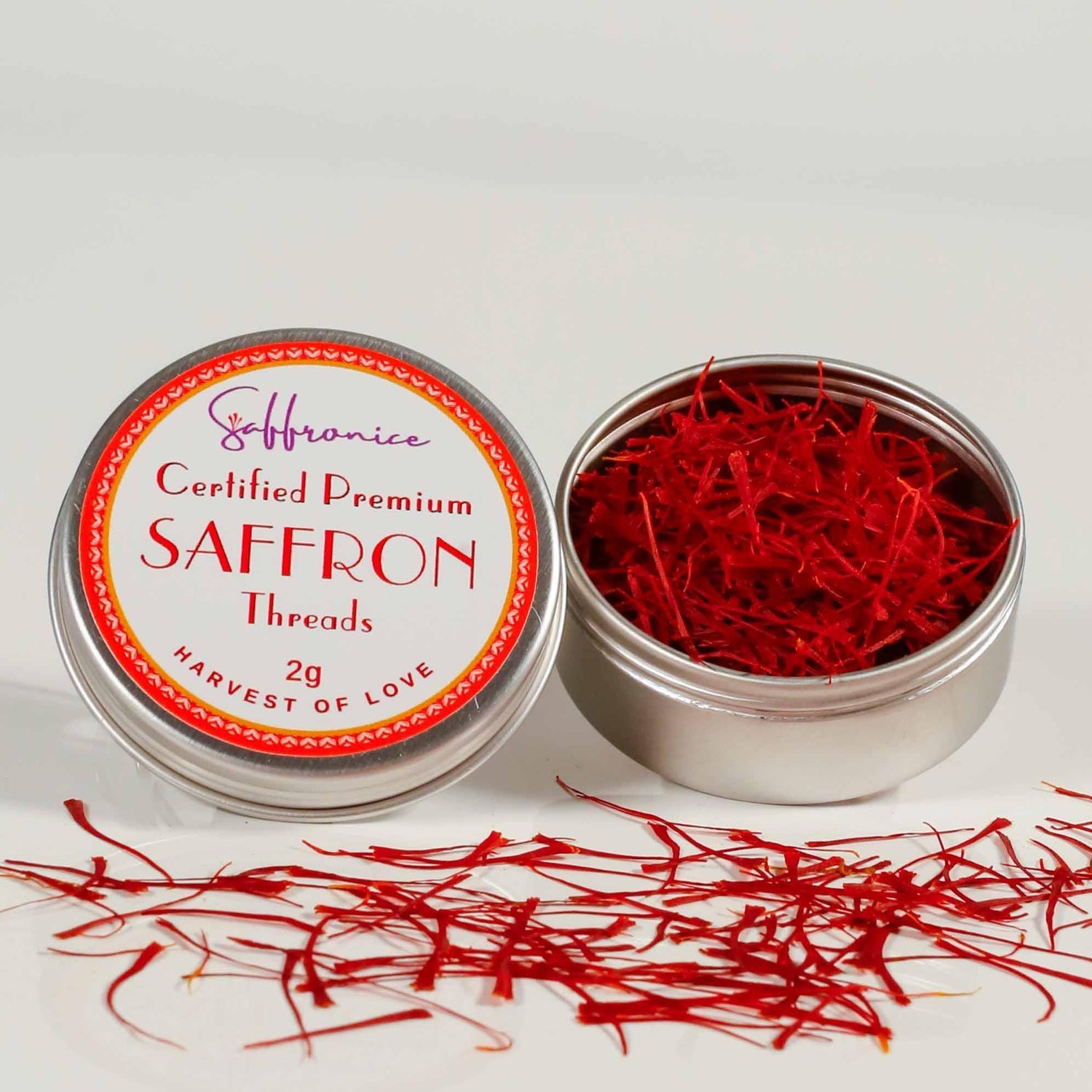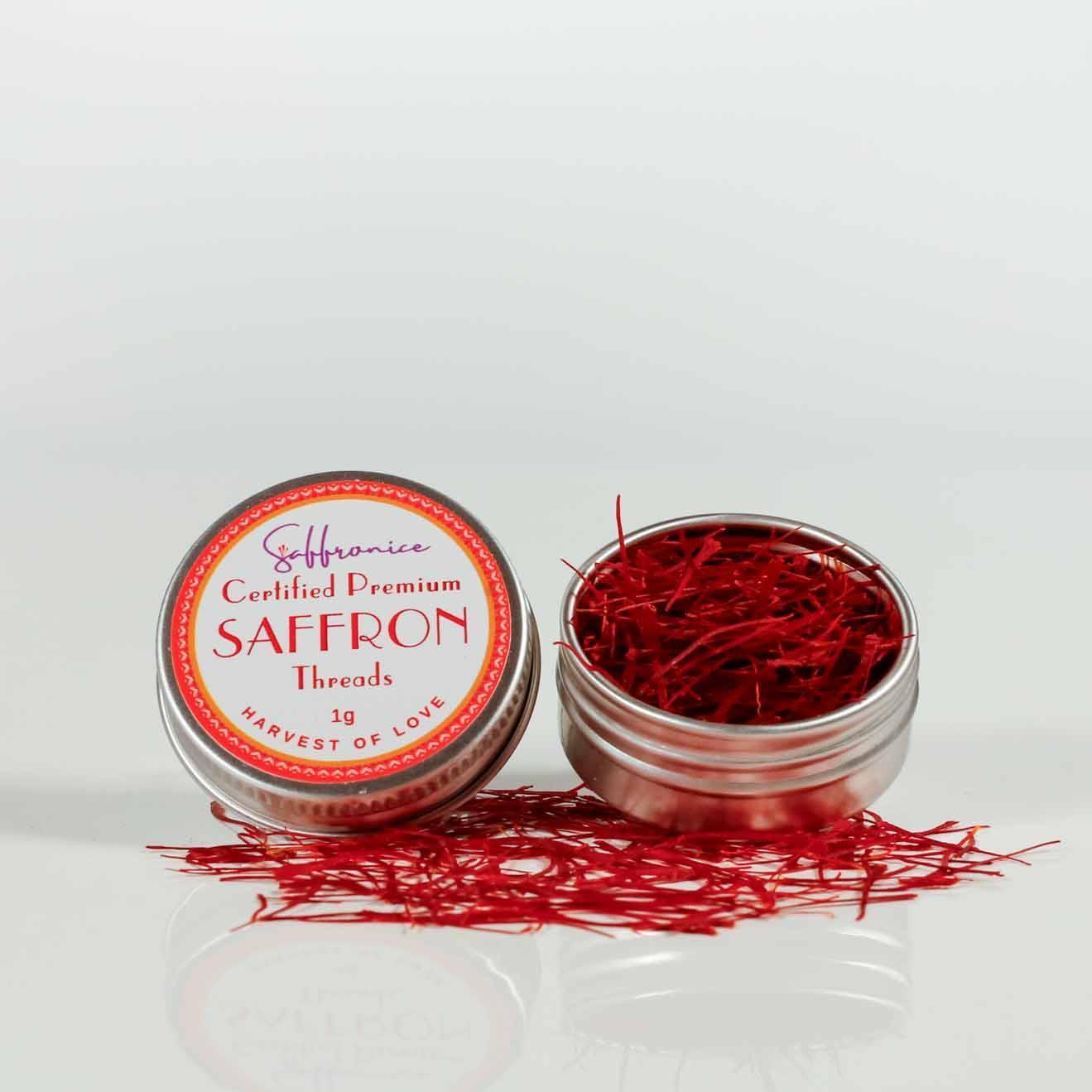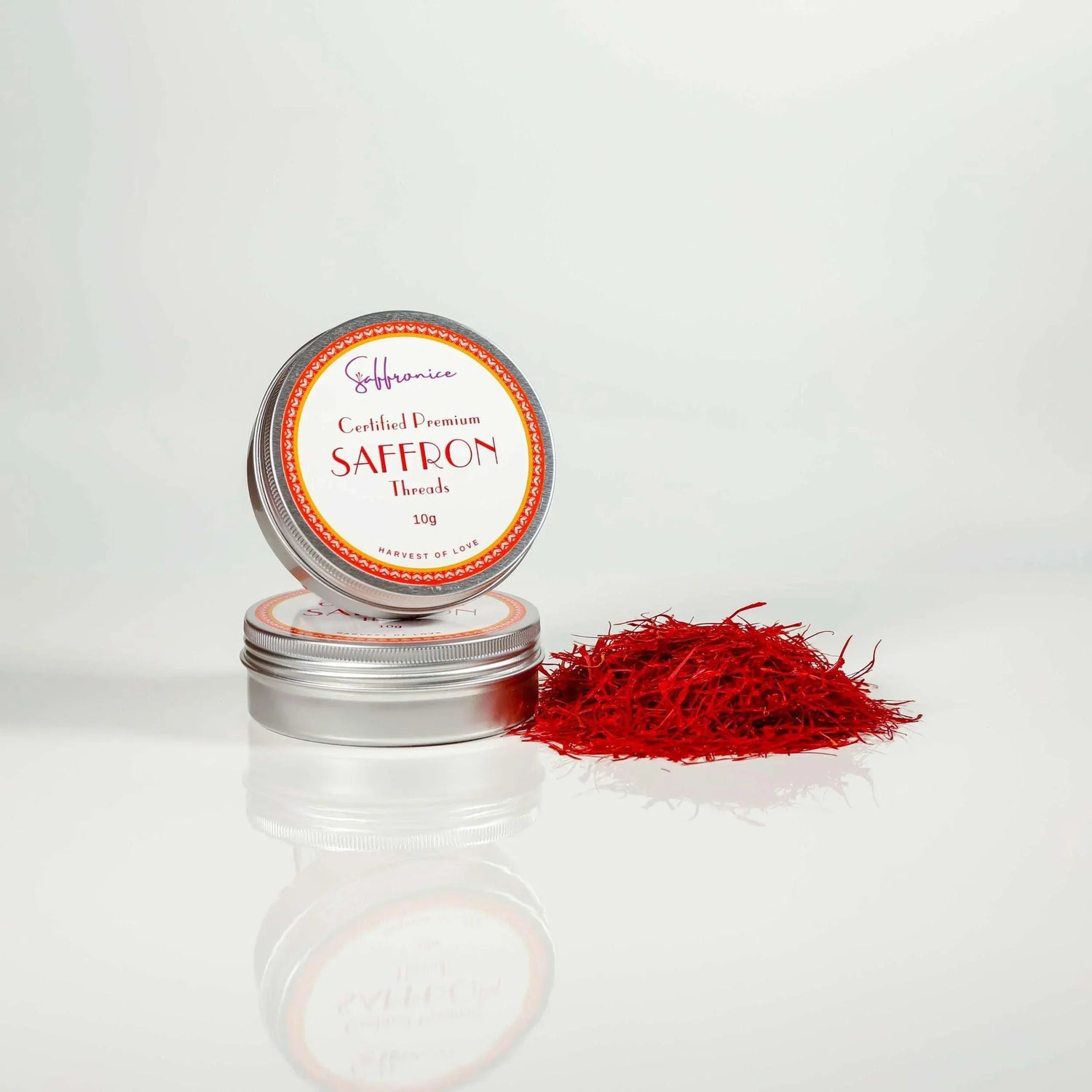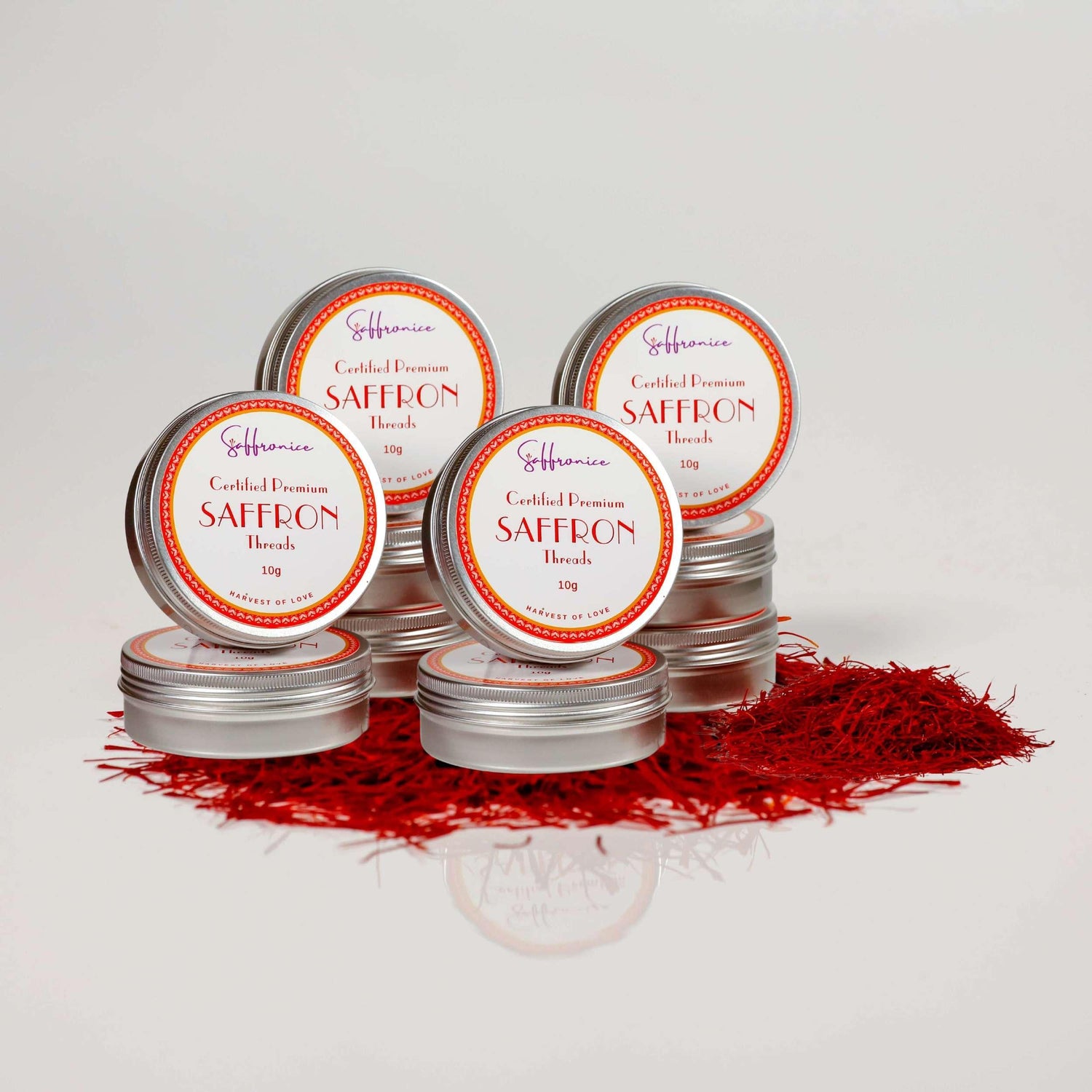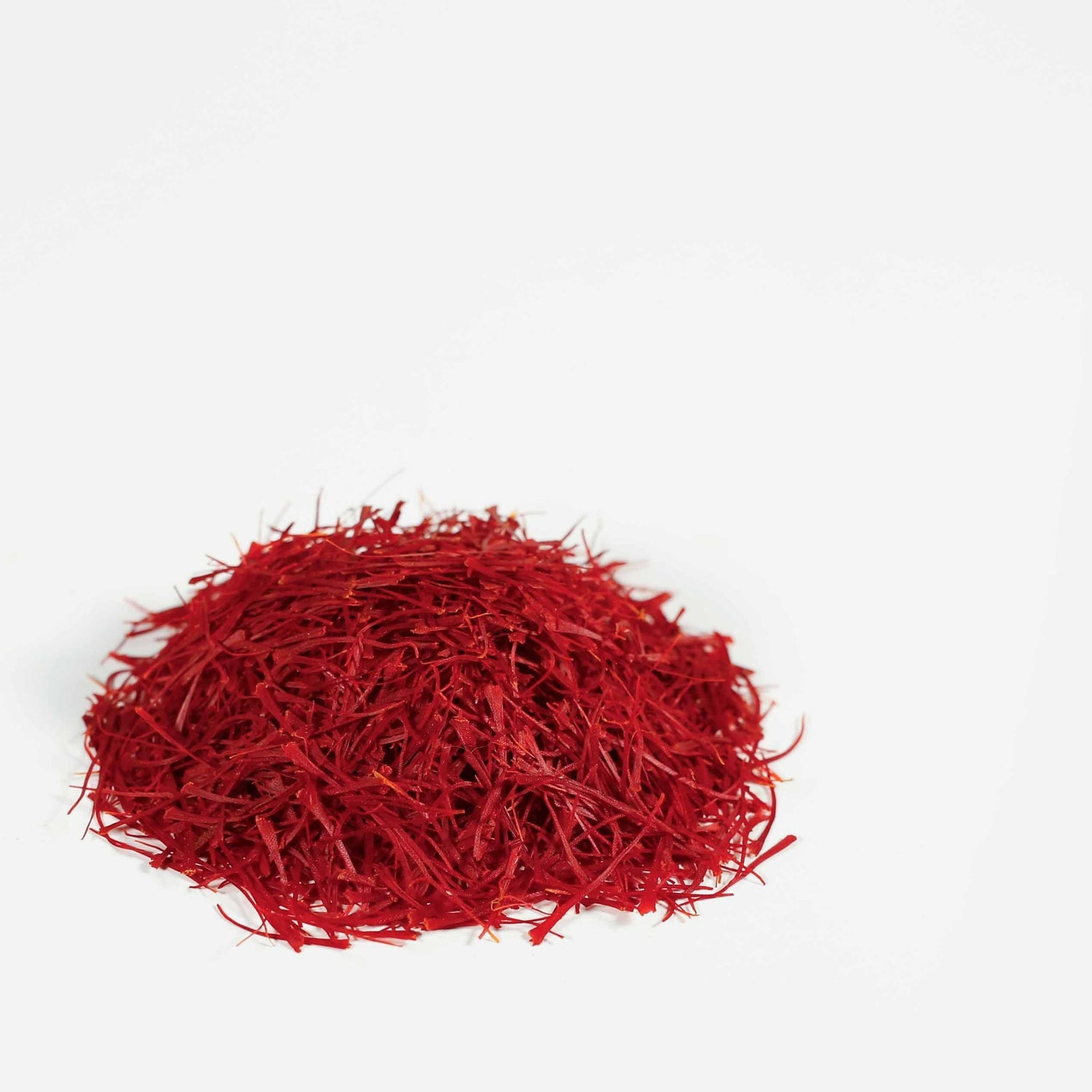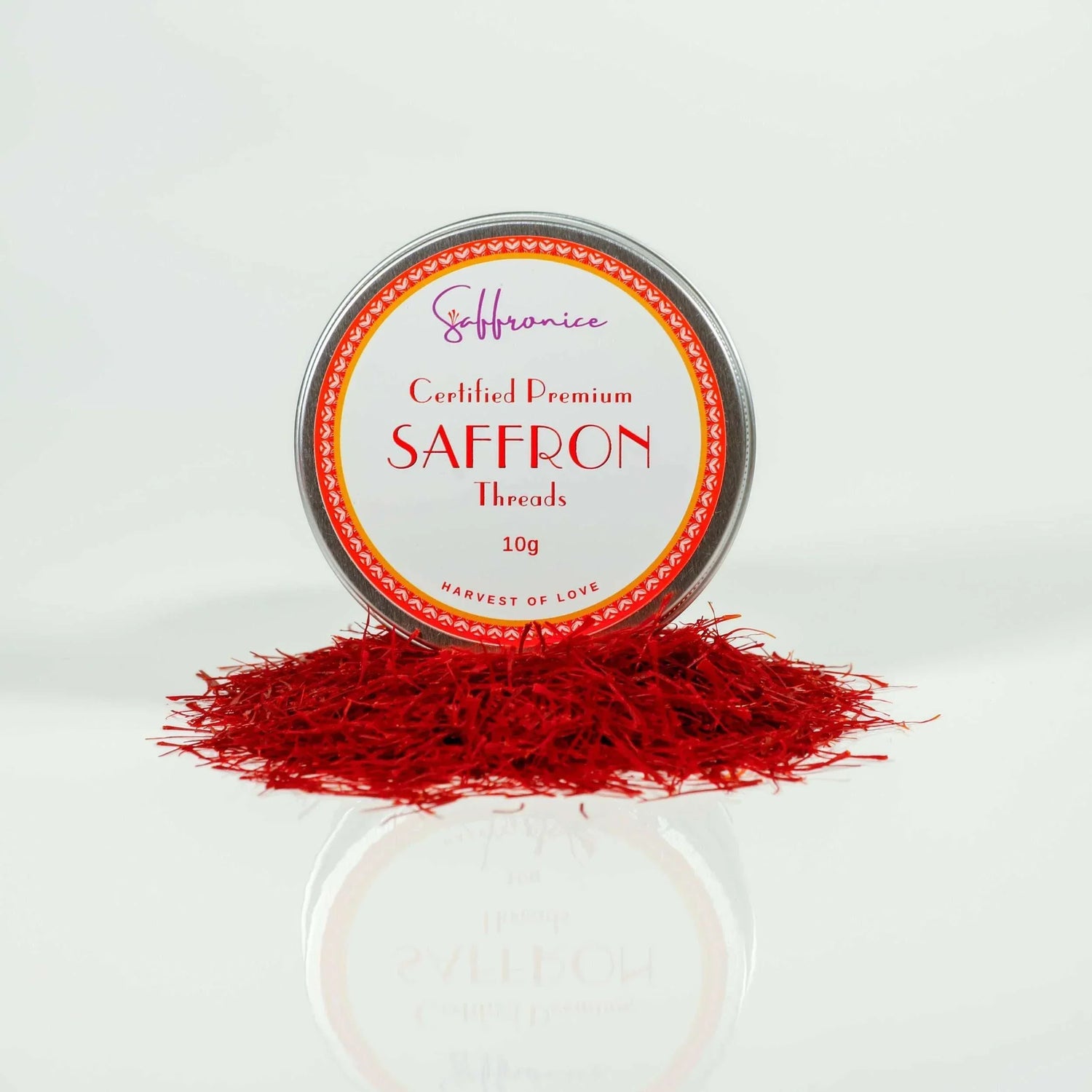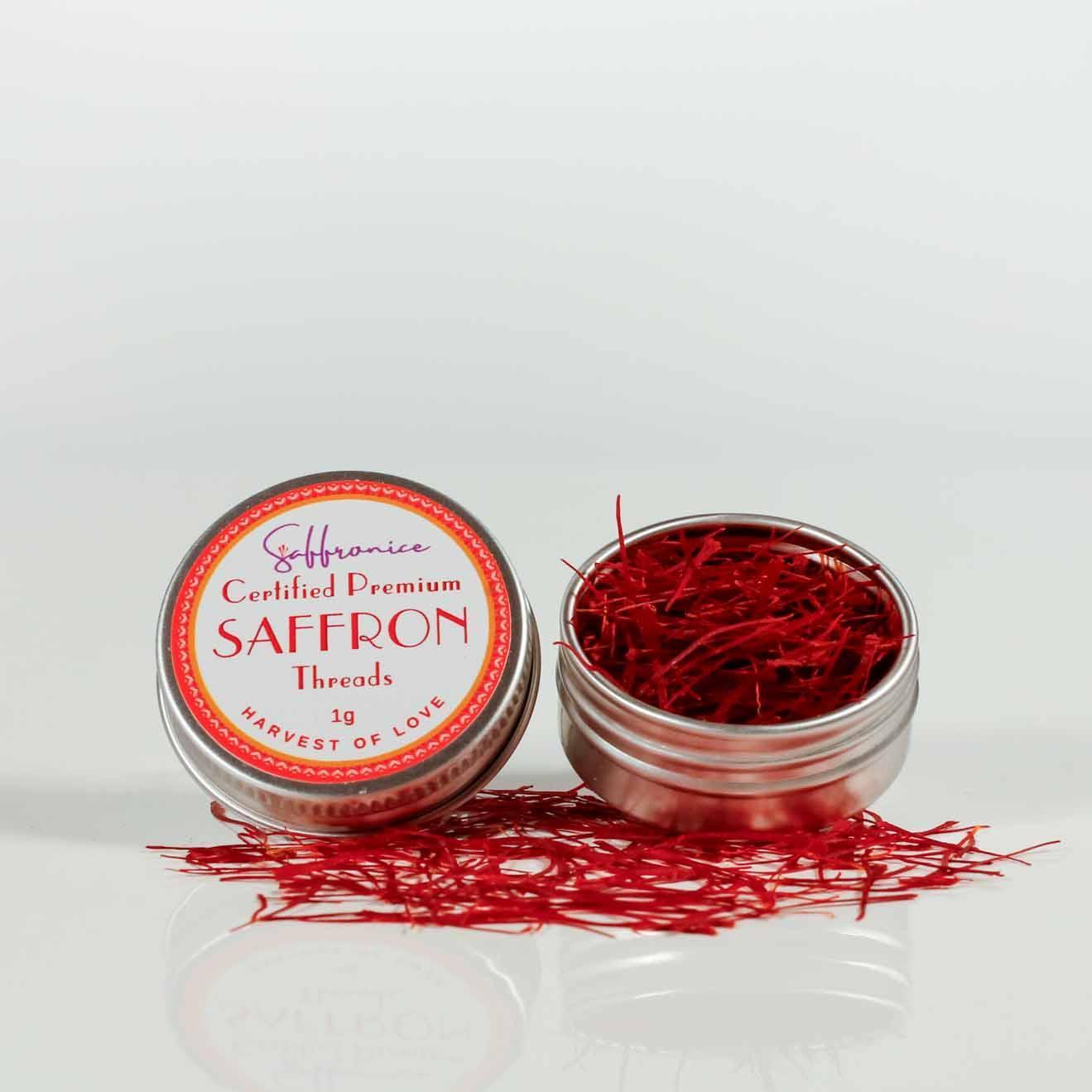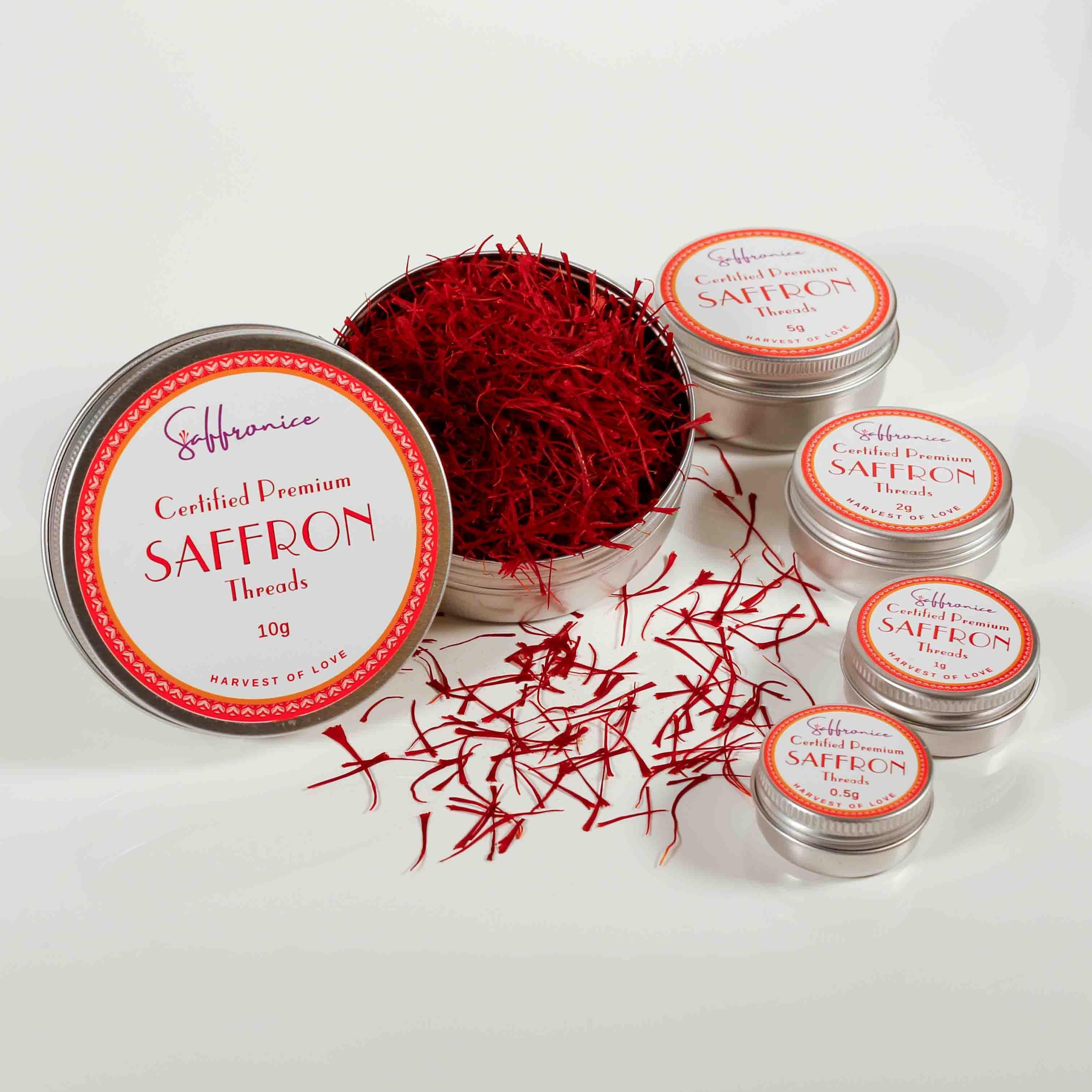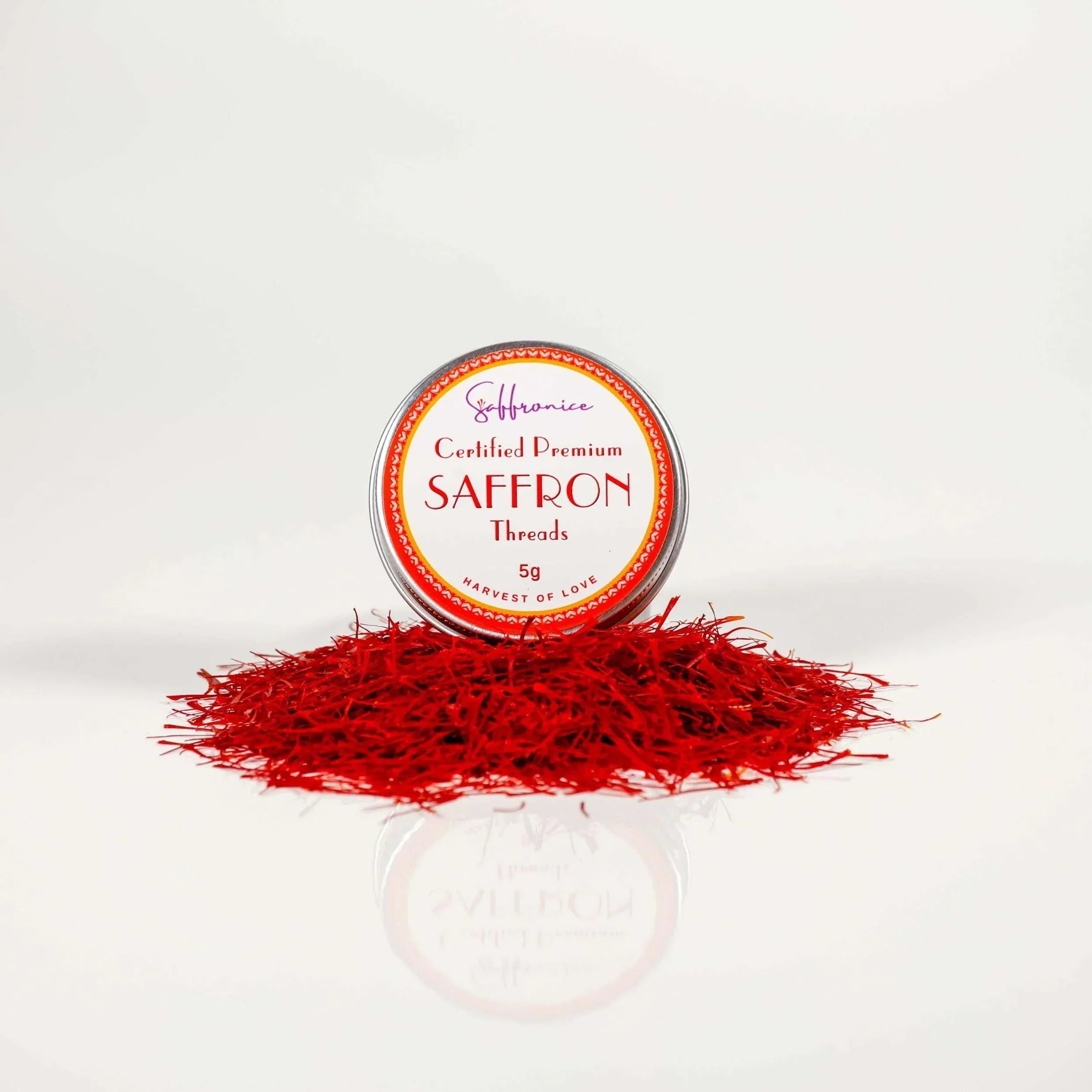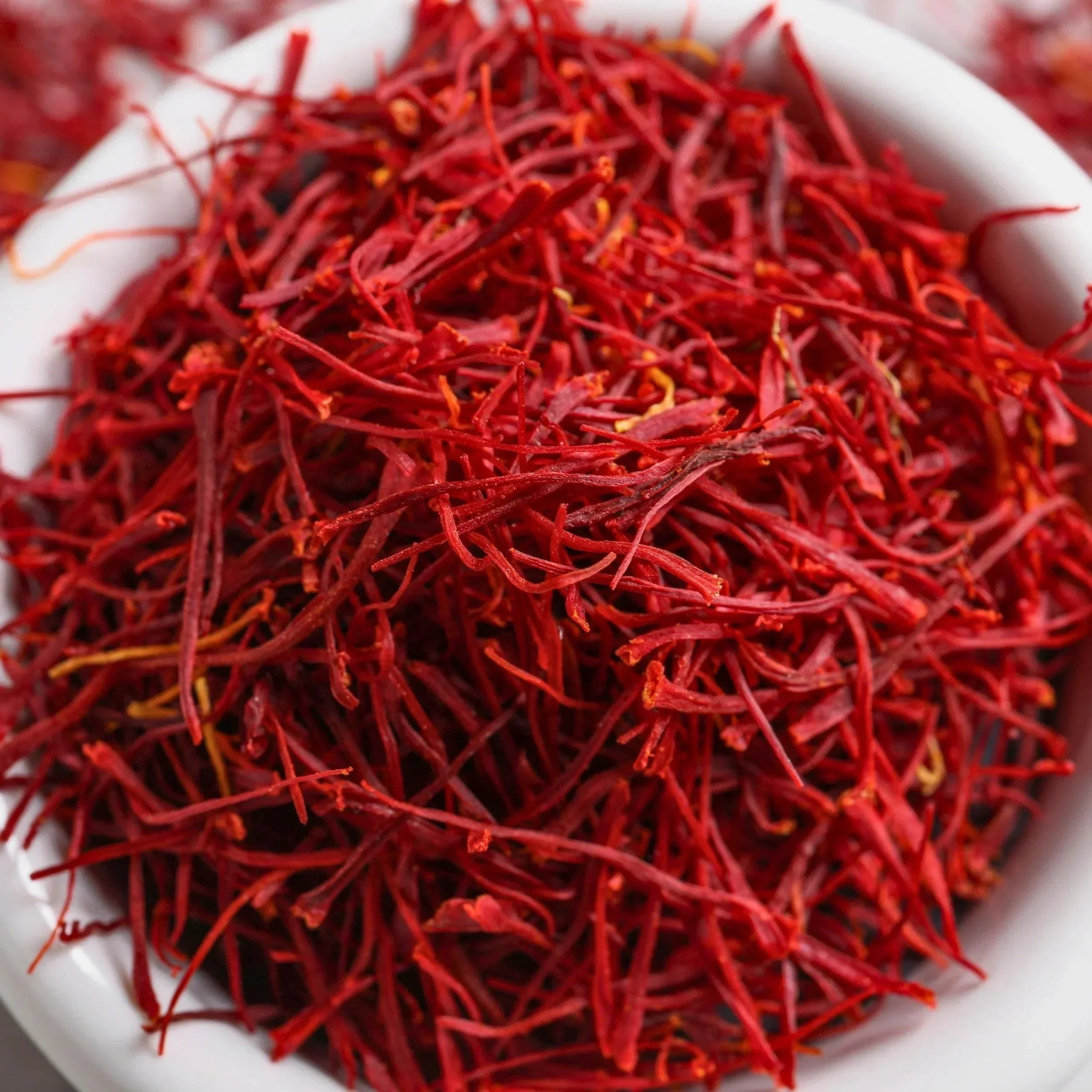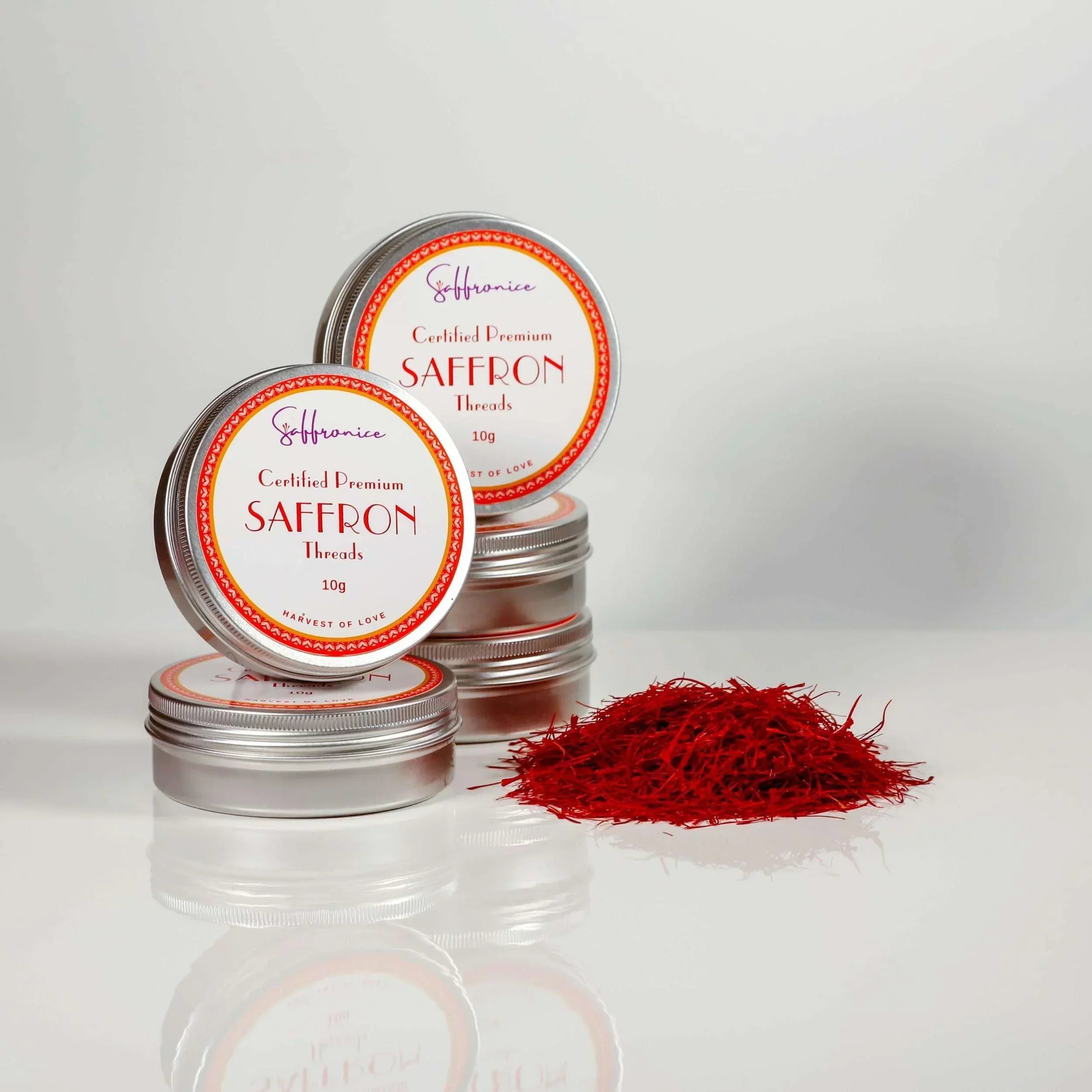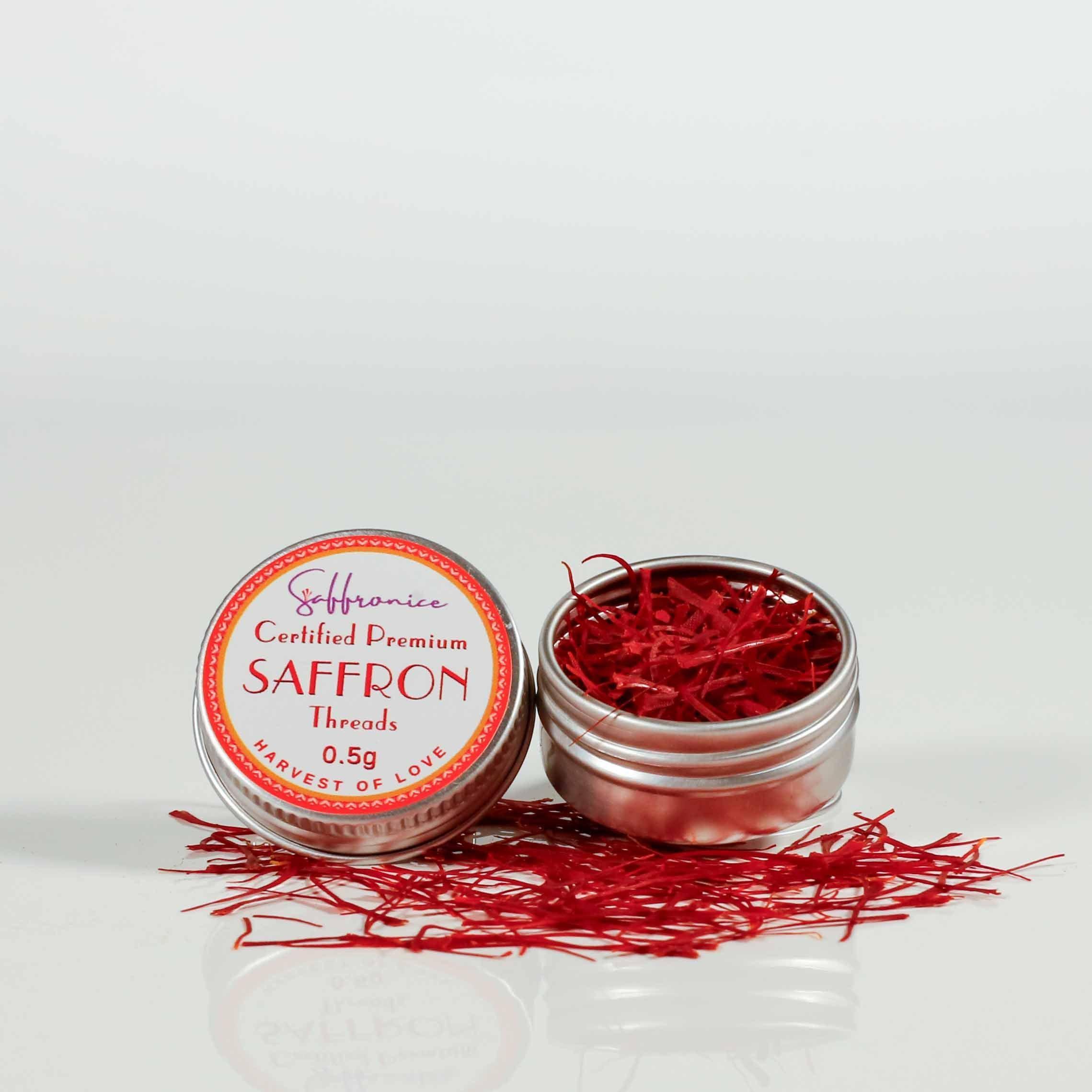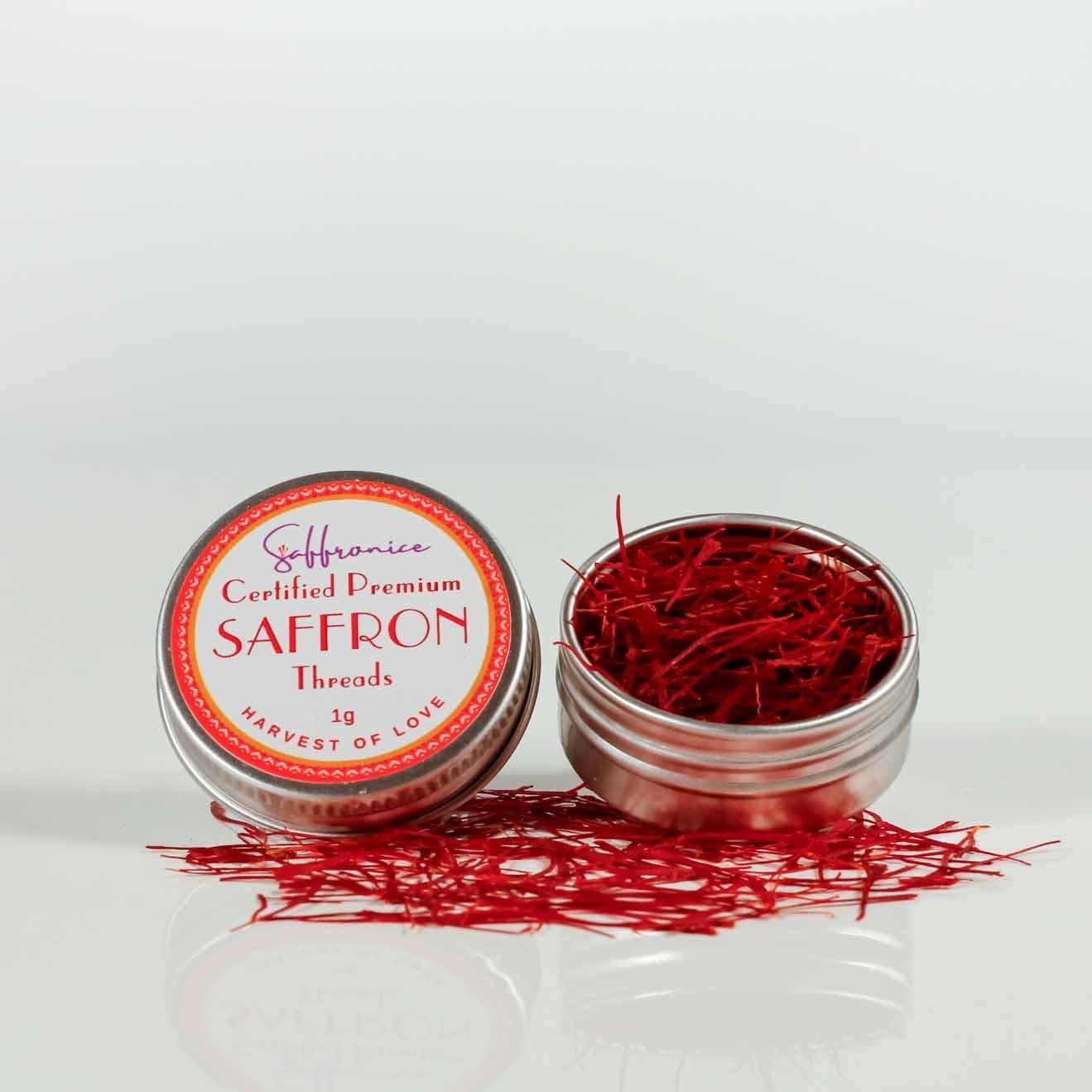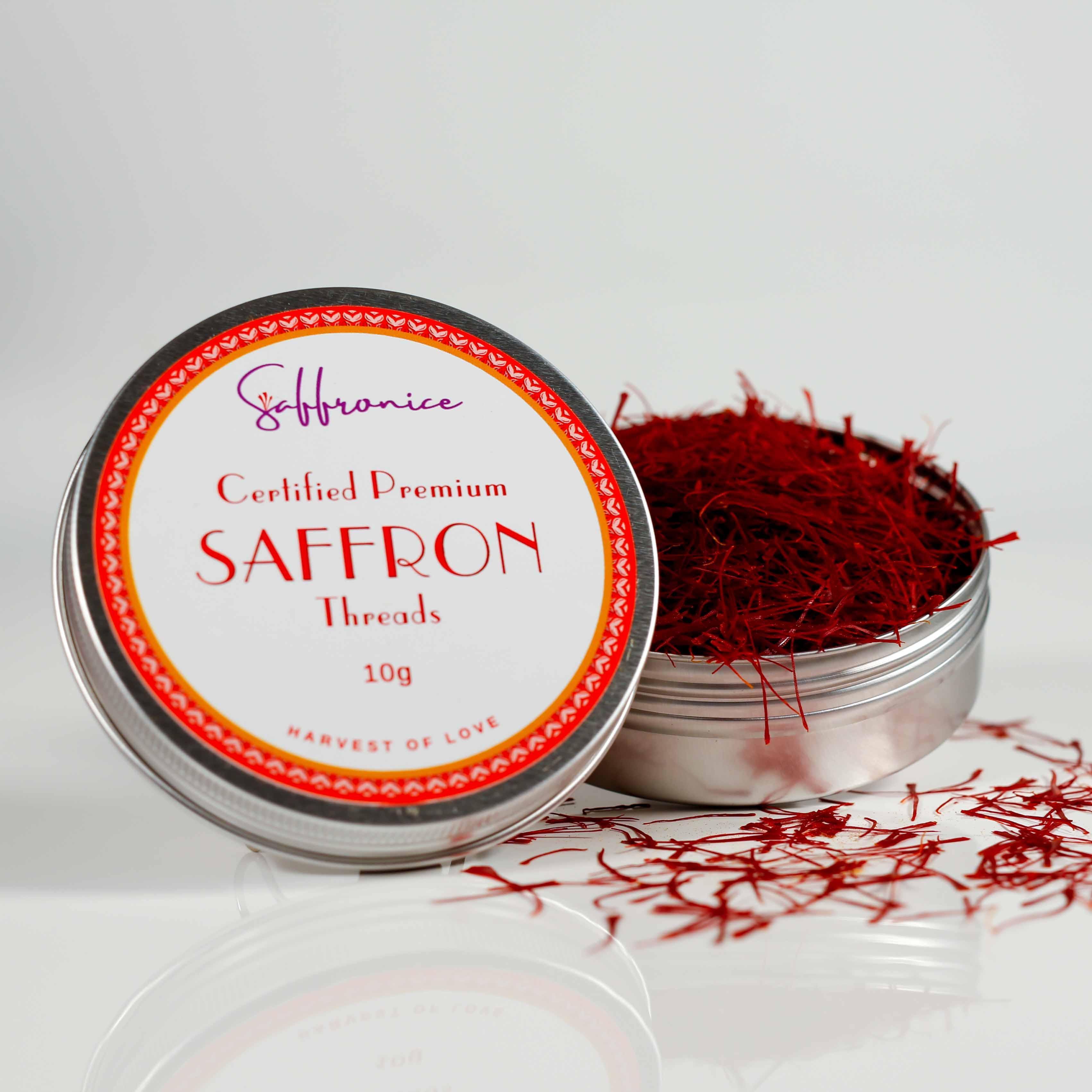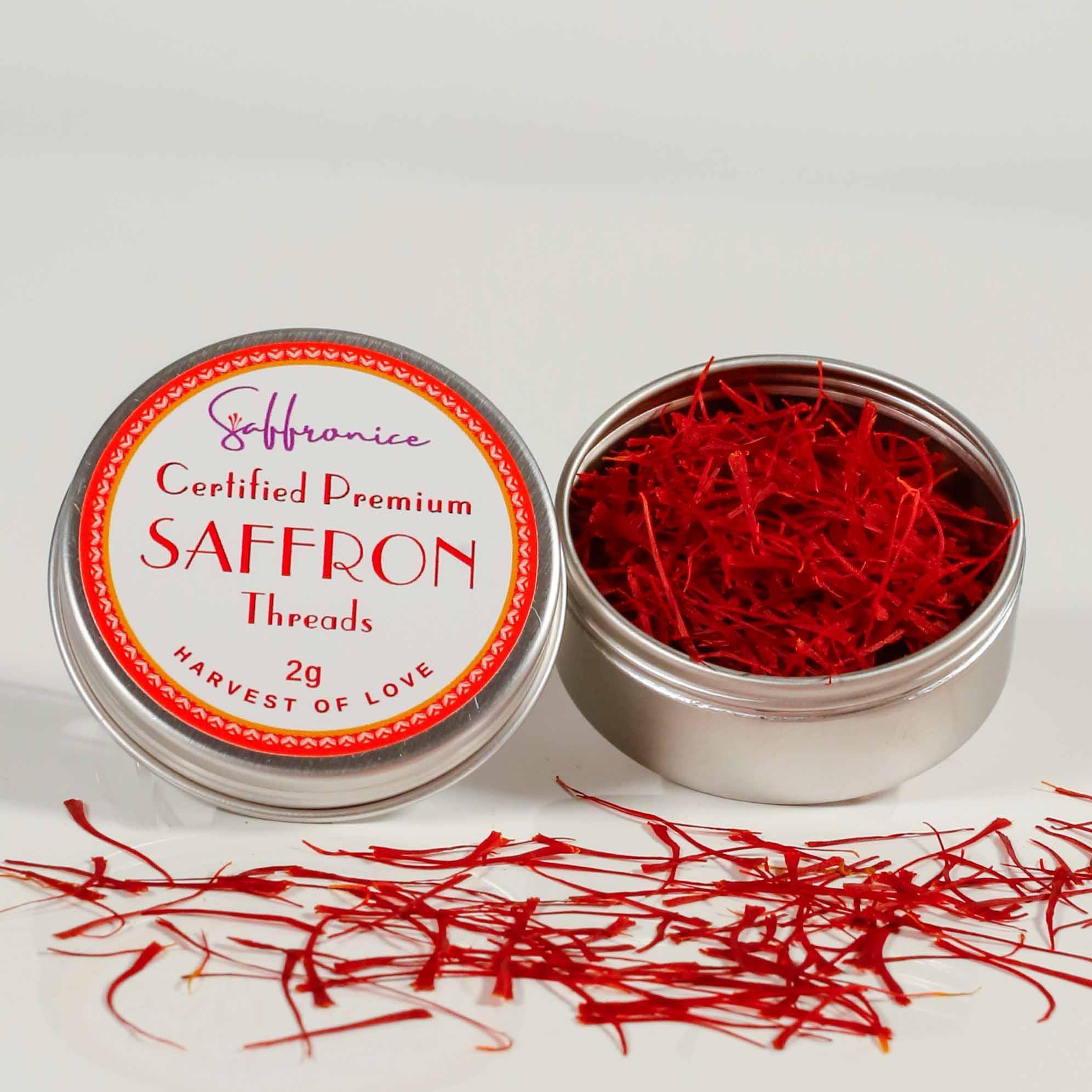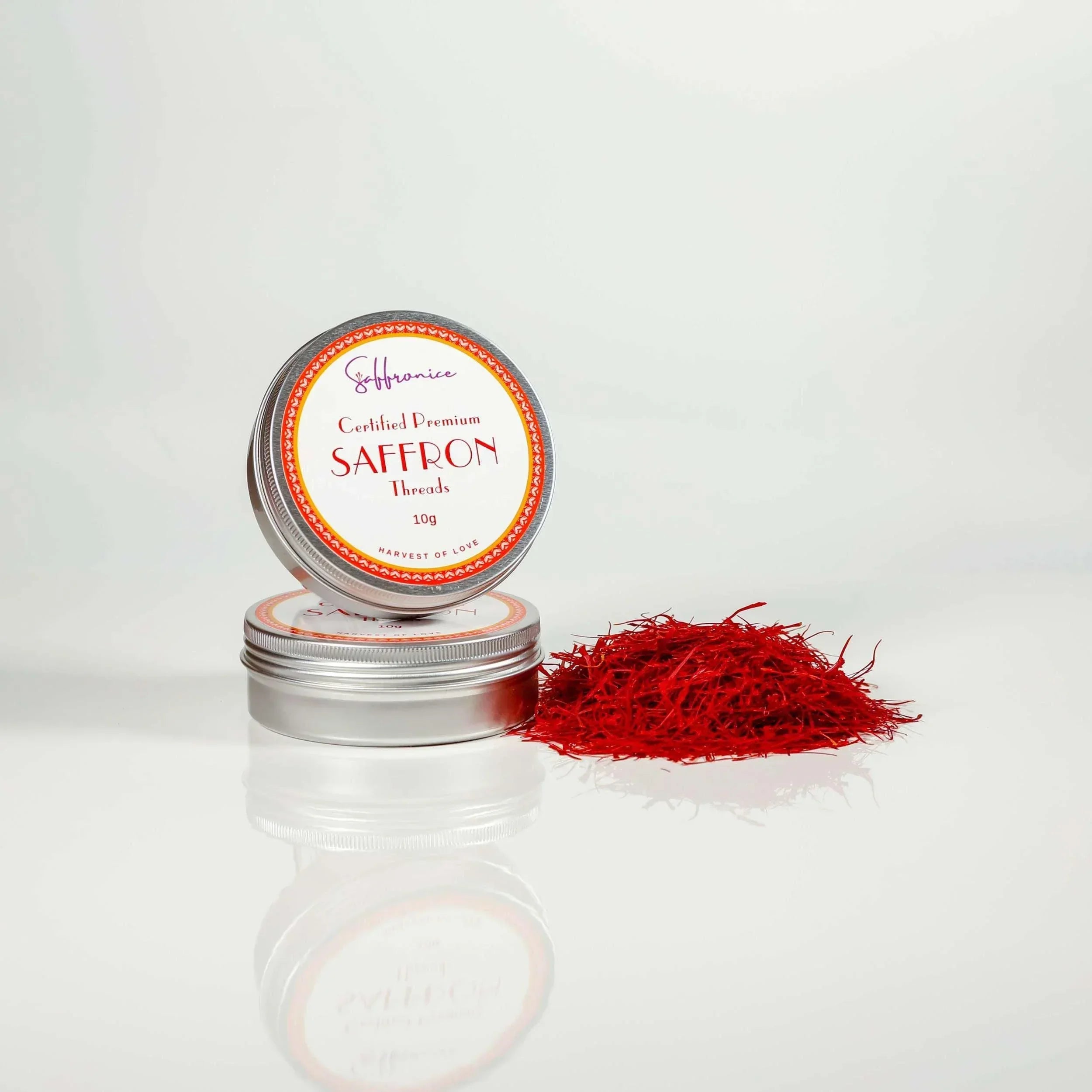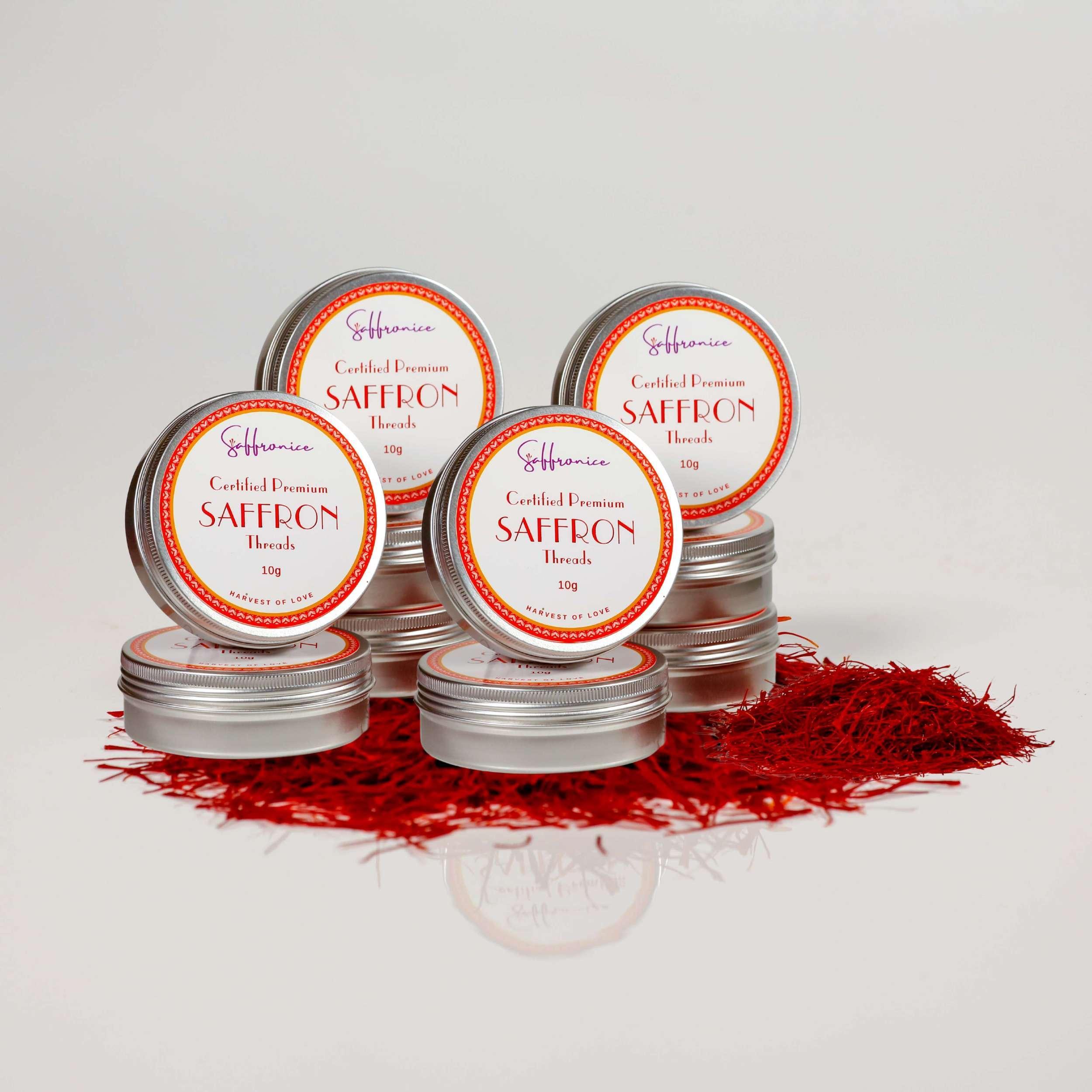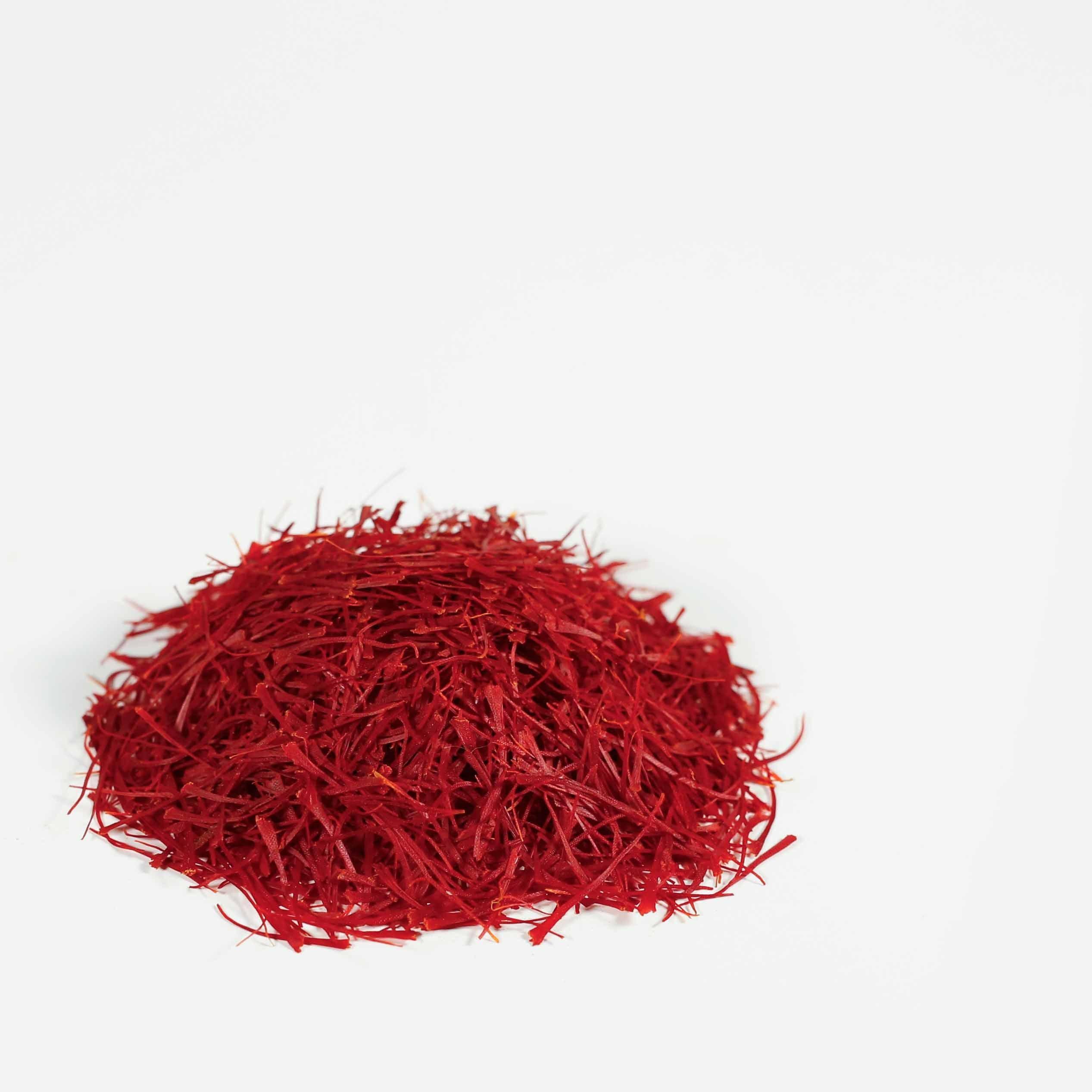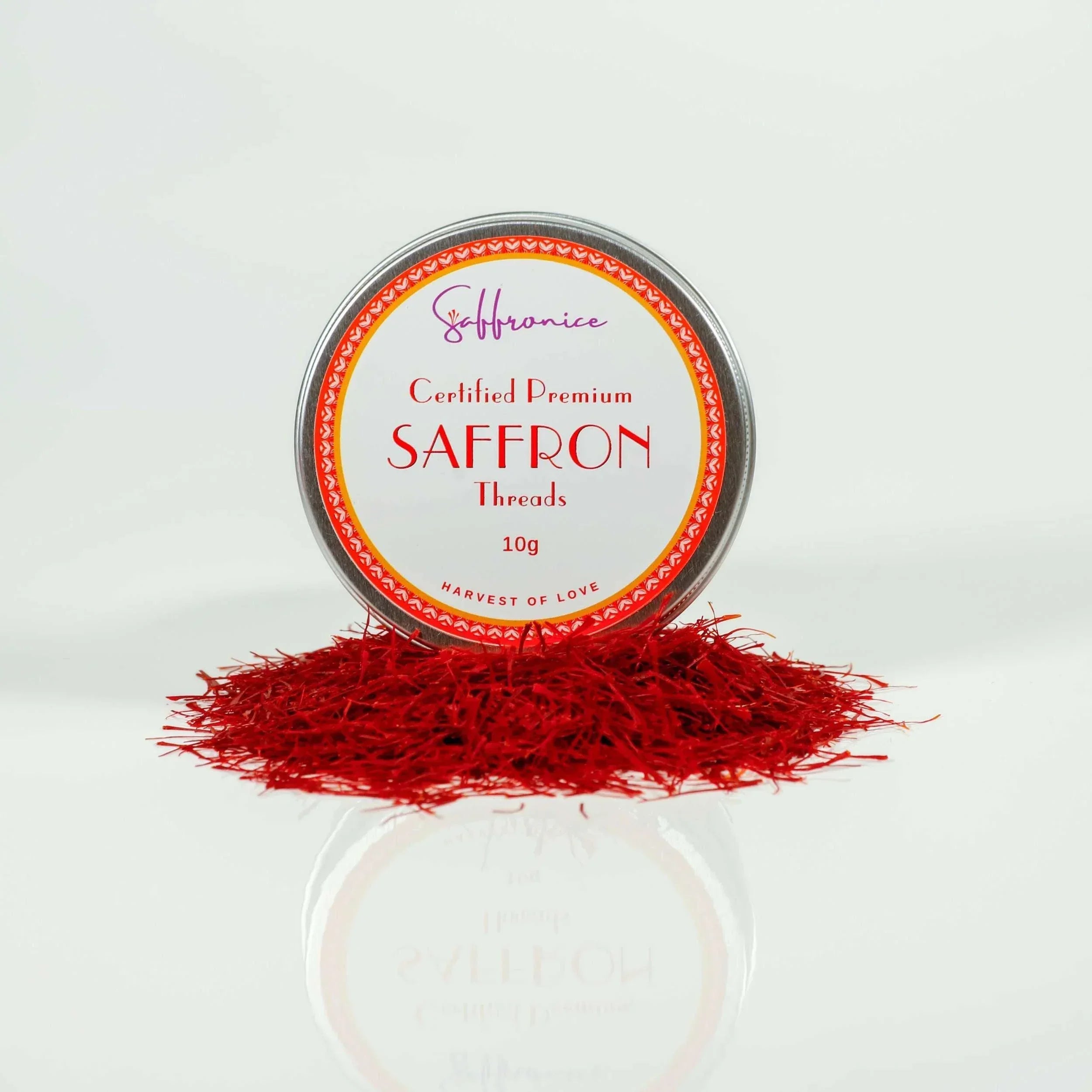Saffron, also known as Crocus sativus, is a bright and colorful spice that is loved not only for its delicious flavor but also for its possible benefits to mental health. Throughout history, this precious spice has been used in traditional medicine around the world to treat various conditions, including those affecting the mind. With the growing interest in natural remedies, saffron's reputation as a promoter of mental well-being, especially for anxiety, is starting to gain recognition.
As the world looks for more holistic ways to manage mental health, it's important to understand how saffron may affect anxiety. Anxiety disorders can be extremely debilitating and impact millions of people worldwide, so it's crucial to explore all potential options for relief.
In this article, we will delve into the research on saffron and mental health. We will examine scientific studies that provide insight into how this ancient spice could offer solutions for individuals dealing with anxiety today. Join us as we uncover the secrets of saffron and discover its potential effects on your peace of mind.

Understanding Saffron and Its Components
Saffron, scientifically known as Crocus sativus L., is more than just a spice used in cooking. It contains various beneficial compounds that contribute to its health benefits. The two main active ingredients in saffron are crocin and safranal.
1. Crocin: The Mood Booster
Crocin is responsible for saffron's vibrant yellow color. But it does more than just add color to dishes; it also has potential benefits for mental health. Research suggests that crocin may enhance cognitive function and improve mood, making it a natural remedy for anxiety and depression.
2. Safranal: The Relaxation Promoter
Safranal is the compound that gives saffron its distinct smell—a sweet and earthy scent. In addition to its aroma, safranal may have calming effects on the mind and body. It is believed to promote relaxation and reduce stress levels, making it a valuable addition to mindfulness practices.
Saffron is known for its strong antioxidant properties, which can help protect the brain from damage caused by free radicals. This makes saffron an interesting option for those looking to support their mental well-being naturally.

The Science Behind Saffron’s Mental Health Benefits
Saffron is showing promise as a natural remedy for mental health issues. Several recent studies suggest that it may help reduce symptoms of anxiety and depression. The key components responsible for these effects are believed to be crocin and safranal, two active compounds found in saffron.
Recent Studies
Various research efforts have shown saffron's positive impact on mental health. These studies indicate that saffron could be a natural alternative to conventional medications, assisting in alleviating symptoms associated with anxiety and depression.
Meta-Analysis Findings
Meta-analyses, which combine data from multiple studies, provide strong evidence supporting the use of saffron supplements. These comprehensive reviews emphasize significant reductions in depressive symptoms among individuals who include saffron in their treatment plan.
Randomized Controlled Trials (RCTs)
The gold standard in clinical research—RCTs—have consistently shown saffron's effectiveness. Participants receiving saffron supplementation often display noticeable improvements in mood compared to control groups. These trials reinforce the notion that saffron's benefits are not coincidental but rather scientifically validated results.
The scientific evidence paints an intriguing picture: saffron is more than just a colorful spice; it has the potential to be a valuable support for mental health.
How Saffron Works in the Brain to Improve Mood
Saffron, often hailed as a golden elixir for mental well-being, shines in its ability to modulate neurotransmitter levels, particularly serotonin. This neurotransmitter is a key player in mood regulation.
- Imagine serotonin as the brain's traffic cop: too little of it, and you might find yourself stuck in the slow lane of melancholy; just enough, and you're cruising along with a sunny disposition.
- Saffron steps in like a skilled conductor, orchestrating an increase in serotonin levels, helping to create harmony within the brain's neural symphony. This is why saffron is often associated with lifting your mood and providing much-needed stress relief.
Beyond this, saffron's influence extends to reducing inflammation and oxidative stress within the brain.
- Think of oxidative stress as pesky rust on the gears of your brain's machinery—left unchecked, it can impair function and dampen mood. Saffron acts as a natural antioxidant, polishing away these molecular rust spots.
- Its anti-inflammatory properties soothe the brain’s pathways much like a calming balm.
With these actions combined, saffron emerges not just as a flavor enhancer but as a potent ally for mental health support, offering hope for those seeking natural remedies to nurture their emotional well-being.

Saffron for Anxiety Relief: What the Research Says
The idea of using saffron for reducing anxiety has piqued interest among researchers, leading to a series of compelling studies. Clinical investigations into saffron supplements have revealed promising results in the realm of anxiety management.
Studies on Saffron and Anxiety
Numerous studies have been conducted to measure the effectiveness of saffron in alleviating anxiety symptoms. Here are a couple of notable ones:
- Randomized Controlled Trial: This trial involved participants experiencing mild to moderate anxiety. It found that those who consumed saffron supplements reported a marked decrease in anxiety levels compared to the placebo group.
- Neurotransmitter Impact Study: This study highlighted saffron's efficacy through its impact on neurotransmitters like serotonin, which plays a crucial role in mood regulation. The findings suggest that saffron can be an effective tool in reducing anxious feelings by enhancing serotonin levels.
The Potential of Saffron
The evidence is growing, supporting saffron as more than just a culinary spice. It holds potential as a natural remedy for those seeking relief from anxiety without the side effects often associated with conventional pharmaceuticals. This opens up exciting possibilities for incorporating saffron into holistic mental health strategies.

Saffron Supplements for Depression Management: A Review of Studies
Saffron, known for its vibrant color and rich aroma, is not only a popular spice but also a potential natural remedy for mental health issues. Recent studies have shown that saffron supplements may have antidepressant properties, making it an interesting option for managing depression.
Promising Results from Clinical Trials
Several clinical trials have specifically investigated the effectiveness of saffron in treating depression. These studies often compare saffron with traditional antidepressant medications and have found that saffron can be just as effective with fewer side effects.
For example, research has indicated that taking 20 to 30 mg of saffron extract daily can lead to significant improvements in mood and overall well-being. This dosage is similar to what is typically prescribed for standard antidepressants, suggesting that saffron could be a natural alternative with an appealing safety profile.
Key Findings from the Research
Here are some key findings from the studies conducted on saffron and depression:
- Antidepressant Effects: Studies show that saffron supplementation can effectively reduce depressive symptoms, sometimes matching the effects of conventional medications.
- Safe and Effective Dosage: Research suggests that daily intake within the 20-30 mg range is both safe and effective for reducing depression symptoms.
These findings highlight the potential of saffron as a natural supplement for managing depression and open up opportunities for further research into its various benefits.

Can Saffron Tea Help with Mental Clarity and Emotional Balance?
Saffron tea, made from the threads of the Crocus sativus flower, isn't just a delicious drink. It's a comforting beverage that may offer benefits such as improved mental clarity and emotional balance. For centuries, people have been brewing this ancient remedy in search of its calming effects on the mind.
Benefits of Saffron Tea for Mental Clarity and Emotional Stability:
- Mental Clarity: Saffron contains active compounds that may support cognitive functions. Drinking saffron tea could sharpen focus and improve concentration, helping cut through mental fog.
- Emotional Balance: The rich tapestry of compounds in saffron tea acts as a natural mood elevator. This is particularly useful during times of stress, gently nudging the mind towards a more balanced emotional state.
- Calming Ritual: The act of preparing and sipping saffron tea itself is meditative. This ritual can provide a moment of mindfulness in an otherwise hectic day.
Crafting saffron tea involves steeping the threads gently to release their full potential. As the aroma unfolds, it whispers promises of tranquility and clarity—a testament to saffron's timeless allure in promoting mental well-being.
Recommended Dosage and Safety Considerations when Using Saffron for Mental Health Support
When it comes to using saffron for mental health, knowing how much to take is important. The recommended dosage for saffron supplementation usually ranges from 20 mg to 400 mg per day. This wide range allows for flexibility depending on individual needs and responses.
While saffron is generally considered safe, it's important to be aware of possible side effects. Some users have reported changes in appetite or mild sedation.
Pro tip: Always start with the lower end of the dosage range and gradually increase as needed, paying close attention to how your body responds.
For those thinking about adding saffron to their mental wellness routine, talking to a healthcare provider can offer personalized advice. This way, you can enjoy the benefits without any unexpected surprises.
Conclusion
Exploring the potential of saffron for mental health opens a fragrant door to natural well-being. The vibrant spice, with its rich history and promising research, offers a gentle path towards emotional balance. By integrating saffron into your everyday life—be it through supplements or a soothing cup of saffron tea—you may find an ally in your journey towards anxiety relief.
Consider weaving saffron into a holistic approach to mental health management. Pairing it with mindful practices like meditation, regular exercise, and a balanced diet can enhance its benefits. As with any supplement, it’s essential to consult with healthcare professionals before making changes to your wellness routine.
The quest for emotional well-being doesn't have to be overwhelming. With its golden threads, saffron might just be the aromatic companion you need on this journey. Embrace the possibilities and step into a more vibrant version of yourself.
FAQs (Frequently Asked Questions)

What is saffron and how has it been historically used for mental health?
Saffron, derived from the flower Crocus sativus, has a long history of use in traditional medicine for its potential benefits on mental health. It is particularly noted for its effects on anxiety and mood enhancement.
What are the active compounds in saffron that influence mental health?
The primary active compounds in saffron include crocin and safranal. These compounds are believed to have antioxidant properties and may play a role in modulating neurotransmitter levels, which can positively affect mental health.
What does research say about saffron's efficacy in reducing anxiety?
Recent clinical studies have shown that saffron supplementation can significantly reduce symptoms of anxiety. Meta-analyses and randomized controlled trials support these findings, indicating that saffron may be an effective natural remedy for anxiety relief.
How does saffron work in the brain to improve mood?
Saffron is thought to improve mood by modulating neurotransmitter levels, particularly serotonin. Additionally, it helps reduce inflammation and oxidative stress in the brain, both of which can contribute to improved emotional well-being.
Can saffron tea contribute to mental clarity and emotional balance?
Yes, consuming saffron tea may enhance mental clarity and promote emotional stability. The beneficial properties of saffron can support cognitive function and help maintain emotional balance.
What is the recommended dosage for saffron supplementation, and are there any safety considerations?
Typical dosages for saffron supplementation range from 20 mg to 400 mg per day. While generally safe, some potential side effects may include appetite changes and sedation. It's advisable to consult with a healthcare professional before starting any new supplement regimen.



